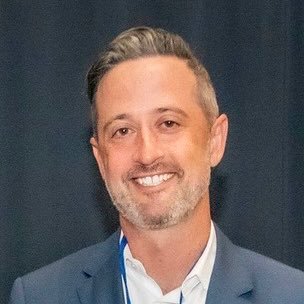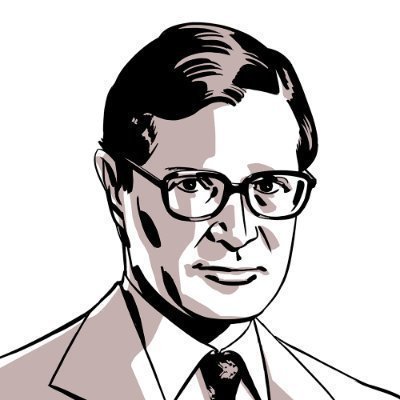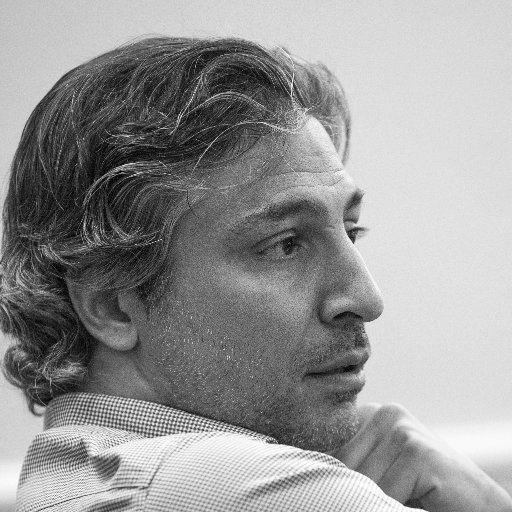
Jared Rubin
@jaredcrubin
Followers
9K
Following
10K
Media
606
Statuses
5K
Economics Professor @ChapmanU. President of @ASREC_Religion. Author of Rulers, Religion and Riches and How the World Became Rich https://t.co/1koBQc1JXY
Los Angeles, CA
Joined February 2016
Extremely excited to announce my new book with @MarkKoyama!!! How the World Became Rich: The Historical Origins of Economic Growth @politybooks Available in US: 9 May 2022 Available in UK: 24 March 2022 Pre-order (in US) here: https://t.co/fzs4FWsjh7
amazon.com
26
110
577
🥳Congrats to our @EJ_RES Referee Prize winners! We recognise the contribution of exceptional referees and thank them for the service they have provided to authors and the journal. Read👉 https://t.co/SCJStvu5SJ
#EconTwitter #RESPrizes @EfremCastel @RDurante_2020 @ProfALanger
0
7
46
Why did Homo sapiens become rich? Economists generally leave it to historians, and to a relatively small handful of them at that, to ponder such an important question. Maybe they need us non-historians to mix things up for them. https://t.co/ckHHykzH1t
@jaredcrubin @MarkKoyama
1
4
11
@jmhorp @DeirdreMcClosk @MarkKoyama @jaredcrubin I can't endorse the Koyama and Crubin "How the World Became Rich" enough. I read it this year. Very concise, yet very thorough. I'm amazed at the advances in the past 20 yrs in digitization and empirical testing for historical questions.
1
2
26
If you want to understand economic development, those older books are not the best place to start (though they were brilliant in their time, and worth reading for multiple reasons) Instead, read Gerschenkron's student @DeirdreMcClosk, and @MarkKoyama & @jaredcrubin
My point: the state can be used for good. It's not true that the private sector is always better. A lot of development and even capitalist structures required incredible state involvement. I recommend checking out these two books.
6
24
157
Join us tomorrow (Sunday) morning bright and early for what should be an amazing session!
Join us at ASSA 2025 in San Francisco for an amazing session! Sunday, 5 Jan 2025 800-1000am “Malthusian Migrations” by @RWacziarg “Knowledge Suppression and Resilience under Censorship” by Ruixue Jia “Religion, Culture, and Economic Growth in the Very Long Term” by Ian Morris
1
1
19
See you at the ASSA 2025 meetings in San Francisco in our Political Economy of Global Religions session with @saumjha @jaredcrubin @DrNathanNunn @JonathanWeigel @ChichengM @yjhuang99
7
8
67
This should be incredible! Join us at ASSA 2025 in San Francisco!!
Join us at ASSA 2025 in San Francisco for an amazing session! Sunday, 5 Jan 2025 800-1000am “Malthusian Migrations” by @RWacziarg “Knowledge Suppression and Resilience under Censorship” by Ruixue Jia “Religion, Culture, and Economic Growth in the Very Long Term” by Ian Morris
0
2
10
Ideological factors shaped the divergent outcomes of Meiji Japan and Imperial China. Japan had a society able to withstand political & social change which accompanied the technological transformation in the period. Debin Ma @UniofOxford, @jaredcrubin
https://t.co/oFvsemwoPY
1
7
13
What underlies differences in cultural diversity across societies? The out-of-Africa migration. Societies whose ancestors migrated farther from Africa show lower diversity in music, folklore, and social norms, values & attitudes. https://t.co/FFK9SEvFOq #econtwitter (1/4)
3
66
171
This is very interesting!!
Were the Ottomans religiously orthodox? An inquiry… Drawing on @jaredcrubin, Michael Cook & JR Neil https://t.co/YE17kU6qIc
2
3
11
A thought-provoking piece by Debin Ma and @jaredcrubin! The ideological roots of technological transformation: Meiji Japan versus Imperial China https://t.co/O1gEm2ISnQ a través de @cepr_org
cepr.org
Japan and China both faced exposure to Western imperialism in the 19th century, but their responses were starkly different. Japan's decentralised political system allowed more flexibility in adopting...
0
12
39
**FINAL REMINDER** Applications for our graduate student workshop at ASREC are due this Sunday, 17 November!
ASREC Grad Student Workshop 6-8 March 2025 Arlington VA A day of instruction from leaders in the field (@MarkKoyama, @AvitalLivny, @jaredcrubin, @JF_Schulz) followed by the ASREC Conference Deadline: 17 November Apply: https://t.co/6lFqCbDrzX For more: https://t.co/vhwiqwTyL0
0
2
9
**REMINDER: Applications due NOVEMBER 17**
ASREC Grad Student Workshop 6-8 March 2025 Arlington VA A day of instruction from leaders in the field (@MarkKoyama, @AvitalLivny, @jaredcrubin, @JF_Schulz) followed by the ASREC Conference Deadline: 17 November Apply: https://t.co/6lFqCbDrzX For more: https://t.co/vhwiqwTyL0
0
3
2
#Religion matters for economic growth - how, when & where it matters is context-specific, but economists disregard it at their peril, @essobecker @jaredcrubin @Woessmann @voxeu
cepr.org
Standard models of economic growth depict physical capital, human capital, population/labour, and total factor productivity as proximate determinants of economic growth. But their deeper determinants...
0
5
12
Applications due Friday! Join us in Arlington. It should be amazing (as usual)
**FINAL REMINDER** ASREC 2025 Arlington VA March 7-8, 2025 Keynote: Robert Boyd **Submissions due: November 1** We will consider papers on religion & culture from the Social Sciences (Economics, Political Science, Sociology, Anthropology) Submit here: https://t.co/O4629NX3e2
0
9
18
Excellent conversation on @jaredcrubin's new book "How the World Became Rich" which presents an insightful approach to the factors leading to differing economic growth patterns. Religion & culture can both stimulate & restrain economic growth depending on specific circumstances.
Did colonization have any positive impact on the economies of former colonies? Learn about it in my interview with Dr. Jared Rubin about his book, How the World Became Rich. #Economics #History #Science Full interview: https://t.co/u6hF4l8xfw
0
1
3
#NobelPrize2024 in Economics to @DAcemogluMIT, @baselinescene, and Jim Robinson. Want to know more about their far far far-reaching impact? Have a look at the breadth of work summarized in this @cepr_org @voxeu E-book. Stelios & I edited some years ago https://t.co/N0EctJPG0M
cepr.org
Over the past decades, economists working on growth have ‘rediscovered’ the importance of history, leading to the emergence of a vibrant, far-reaching inter-disciplinary stream of work. This column...
1
28
112
I had a great conversation with @SoumayaKeynes & @jaredcrubin about the impact of @DAcemogluMIT, Johnson and Robinson's recent Nobel
ft.com
Their work explores how institutions created in the distant past can still shape countries in the present
0
15
32
Why are some countries richer than others? Ask the Nobel economists
ft.com
Their work explores how institutions created in the distant past can still shape countries in the present
0
21
51


















